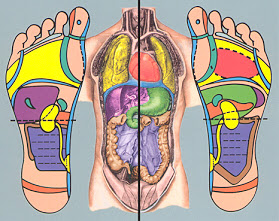I've had this done to me too, so I know how it feels. I feel it's something in women's survival instinct, that cause them to do this. Wherever you have a group of women you will always have an element of competition and rivalry where upon there will be jealousy and bitchiness. Likewise most women don't dress to impress men, if you ask them the vast majority if they are honest, they will tell you its to impress and be one up on other women
FROM THE DAILY MAIL
Why are women so cruel when it comes to dumping friends?
For many women, there’s only one thing more devastating — more visceral in many ways — than being dumped by a bloke. And that’s being dumped by a girlfriend.
Like being fired, it is a rite of passage into emotional adulthood that many of us will have experienced — or, if we haven’t, we certainly should have.
It hurts. Hell, it’s meant to. Suddenly, someone with whom you’ve shared everything (except sex and morning cornflakes) for years freezes you out. For ever. You are, unapologetically, ‘iced’.

Famous falling out: Paris Hilton, left, and Nicole Richie were once the best of friends
Women do it to other women with exquisite cruelty. They use the silent treatment. They’ll bitch to friends till the cows come home about what you’ve done to get up their perfect little noses, but they don’t pick up the telephone to try to straighten things out with you.
They don’t return calls, they give parties and don’t invite you (but invite mutual friends so you always hear about them). They never make the first move and, worse, they never make the last move.
There’s no farewell dinner, no Dear John letter, no one for the road, no one for old time’s sake — and therefore, no closure.

Rachel Johnson, editor of The Lady magazine, was dumped twice by friends when she was younger
The dumpee is left wondering: what was all that about? Why am I no longer required? Men find women’s behaviour in this regard utterly bizarre.
As a male acquaintance once said: ‘There’s nothing in the world stronger and flimsier in the world of relationships than two female best friends — because today everything is good, but tomorrow you might have to damn her and discontinue that friendship till the day you die.
Yup, I’ve been there. Twice. The first time, I was dumped by my best friend from school because she thought I’d slept with her boyfriend. I hadn’t, strictly speaking. But there were Clintonian shades of ‘I did not have sex with that man!’ to my denials because we had messed around. But we were undergraduates. I was 19, for Pete’s sake!
The second time I was also quite young. My friend was simply fed up with me and our lives had diverged: mine into marriage, the BBC and children, hers into being a single installation artist in a Shoreditch loft.
So I have never been dumped by someone with whom I’ve shared boyfriend misery, childbirth war stories, husband agonies, career dilemmas. When that happens, it must be shattering.
‘I was dumped,’ says a very dear friend of mine. ‘I’d known this woman intimately for 15 years, she was single, and every weekend, the call would come: “What are you up to?” and we would include her in the family. We looked after every spare moment of her long spinsterhood.
‘Then she met a bloke and my husband left me. Instead of calling and saying, “Are you OK?” or asking: “Do you want to come round?” my best friend became best friends with my replacement. She went off with the new woman!’

Life gets in the way: If one of you gets married or has children before the other, it can lead to jealousy and resentment like in the film Bride Wars
It’s hardly surprising my friend is still spitting about it. Often, you don’t see a man for dust after a sexual relationship has run its course, but you do expect your, er, steady girlfriend to watch your back — and when she doesn’t it can be unexpectedly horrid.
‘It wasn’t more hurtful than being left by my husband, it was a different kind of betrayal,’ says my friend.
So it’s a mystery. According to evolutionary biologists, women have a ‘tending instinct’.
When the going gets rough we round up the kids, protect the weak, hoard food, and align ourselves with other females for protection. So when the bonds rupture, and females go cold on one another, it goes against nature. Or does it?
Perhaps our female friendships are more like affairs than we admit. The female really is deadlier than the male when it comes to relationships. I think this is because we have lots of female friends, and usually only one male lover at any one time and the females are more disposable.
I sometimes wonder whether we pick female friends as we choose lovers — because there’s excitement, chemistry, attraction — rather than as we choose our husbands. When it comes to a life-long partner, we seek dependability, solvency, kindness, among other qualities.
But with new lovers, just as with new girlfriends, there’s the crucial sizzle factor. And an early friendship is actually much like an early relationship — there’s a stage at the beginning when you feel you were made for each other, you can’t get enough of each other’s company, you chitter-chatter on the phone . . . and then one of you messes up, goes on a bit, and you realise: you’re mates. It’s nothing special, just a common-or-garden friendship.
'Women are programmed to be promiscuous about friendships: we have loads of friends, and few sexual partners - while for men it's the other way round'
And, if you’re lucky, and the friendship has solid foundations — lots in common, children the same age — you soldier on. But sometimes something happens when friendship can’t continue.
There’s too much jealousy (if one of you marries, has children, loses weight and looks threateningly hot). There’s too much resentment (if one of you has poached a friend, betrayed a confidence, or been caught gossiping).
And then, sometimes, it just ends. One of you is . . . let go.
Men approach friendship very differently. They tend to make friends, usually aged eight or so, and hold on to them no matter what — adultery, divorce, betrayal, gender-reassignment.
My husband has five really close male friends, the same ones he’s had since he was in short trousers, and he wouldn’t dream of changing the line-up.
I have an ever-growing roster of female friends, and make (and occasionally lose) friends all the time. When I asked my husband if he’d ever dumped a friend, he had to think for ages, then said: ‘Maybe one . . . ’
When I asked him why, he said: ‘Oh, he became a junkie, and abusive, and every time I saw him he asked me for money, and it just became a bore.’
‘Did you cut him out of your life?’ I asked. ‘Lord no,’ said my husband. ‘I just don’t make, you know, a point of seeking him out.’
I would conclude that women are programmed to be promiscuous about friendships: we have loads of friends, and few sexual partners, while men are hardwired to have fewer friends and more sexual partners. To men, a friend is for life, but not for women.
A girlfriend really can just be for Christmas.
Maggie Brown (Author)
Find all the books, read about the author, and more.
 Top Stories
Top Stories








